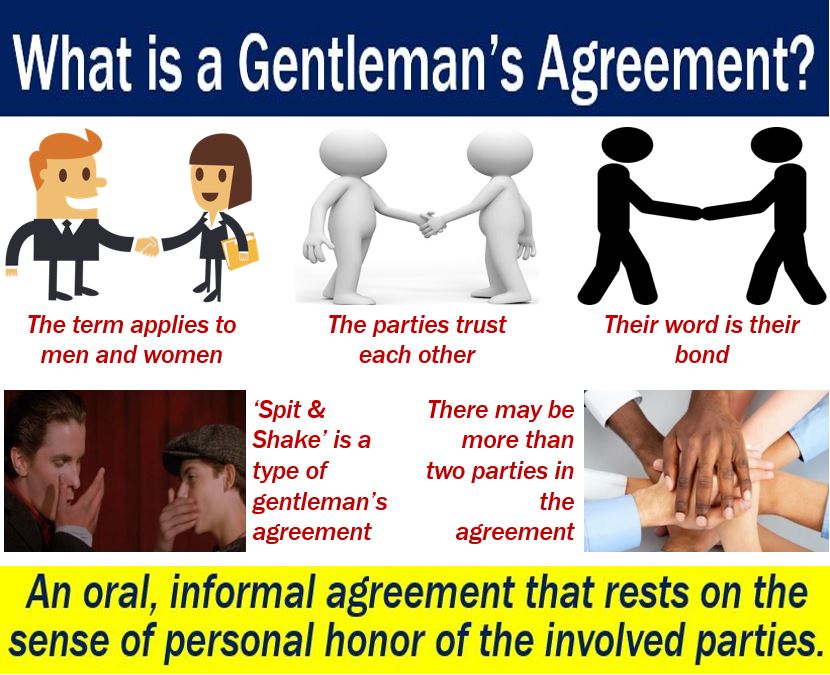Gentleman’s agreement – definition and meaning
A gentleman’s agreement is an informal, non-binding agreement in which the parties trust one another to keep their promises. We can also use the plural, and say ‘gentlemen’s agreement.’ It is not usually a document, i.e., there are no signatures, papers, or writing. If one of the parties breaks the agreement, the others do not usually have recourse to the courts. Put simply, a gentleman’s agreement has no legal force in most places.
However, in the United Kingdom, this type of agreement may be legally binding (see the last section of this article).
Each party in a gentleman’s agreement has faith that everybody will fulfill their promise because of their sense of personal honor.
According to CollinsDictionary.com:
“A gentleman’s agreement or a gentlemen’s agreement is an informal agreement in which people trust one another to do what they have promised.”
All dictionaries online say that the phrase never refers to a written agreement. However, Wikipedia says “It is typically oral, though it may be written.”
Origin of ‘gentleman’s agreement’
Etymologists and historians are not sure how the expression emerged and who used it for the first time. Etymologists study the history and origins of words and phrases and how they evolved.
The phrase ‘gentleman’s agreement’ appears in British Parliamentary records of 1821. It also appears in Massachusetts public records of 1835.
According to the Oxford English Dictionary, P.G. Woodhouse (1881-1975) used the term in his 1929 story collection Mr. Mulliner Speaking. P.G. Woodhouse was an English author. He was one of the most popular humorists of the last century.
Sometimes, if the parties know each other extremely well, it may even be a non-verbal agreement.

Gentleman’s agreement – legally binding?
In 2016, after carefully examining evidence, the British High Court accepted that a gentleman’s agreement could be legally binding.
The High Court ruled that even if not written down as a formal contract, an informal agreement can be legally binding. However, there must have been an ‘intention to create legal relations.’
According to LegalLoop.co.uk, the High Court’s ruling confirmed an accepted principle in English contract law.
LegalLoop.co.uk wrote:
“There is a general accepted rule in English contract law that informal agreements can be binding between parties if there is an ‘intention to create legal relations’.”
“These agreements are most commonly inferred in a commercial context.”

